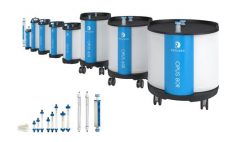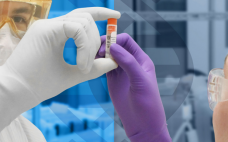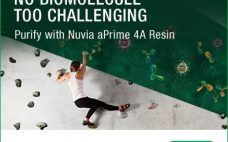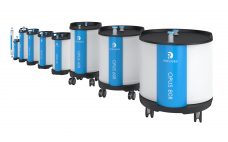This webcast features: Dr. Anna Le Bris, Senior Application Specialist, Bioproduction, Thermo Fisher Scientific POROS resins are widely used in commercial bioprocesses for the purification of large molecules, in both the capture and polish steps of downstream processing. POROS chromatography resins are based on a rigid polymer, allowing them to withstand very high pressure and be mechanically and chemically stable. Because POROS is a rigid bead, it can be packed in cGMP columns with volumes up to 1000 L. POROS…
Downstream
Robust Performance of OPUS® Columns Pre-Packed with CHT™ Resin
This webcast features: Fletcher Malcom, Product Line Leader – Chromatography, Repligen Ceramic hydroxyapatite (CHT™) resins are used in processes where unique selectivity is desired for purification of mAbs or recombinant proteins. Until recently, shipping columns pre-packed with CHT™ resin provided challenges due to the fragile nature of the chromatographic bed. To overcome these challenges, Repligen has developed a proprietary packing method for CHT™ resins which maintains chromatographic performance during transit. In this presentation, packing performance and shipping validation data will…
Scalable Purification Strategies for Viral Vectors and Vaccines
This webcast features: Mark A. Snyder, Ph.D., R&D Manager, Process Chromatography Applications, Bio-Rad Laboratories Large-scale downstream processing of viruses can face a range of obstacles different from those of many biotherapeutics. These challenges mostly arise from the size and complexity of the virus, which can affect product purity and recovery. Improvements of purification tools are necessary to overcome these challenges and must be engineered for easy scalability to meet manufacturing demands. Dr. Mark Snyder will discuss the difficulties when developing…
Lenti Non-Settled Suspension Harvest Clarification Process Development
This webcast features: Stephen Tottey, PhD, Associate Principal Scientist, Process and Technology Development, Wuxi Advanced Therapies and John Taylor, Process Development Scientist, MilliporeSigma. Clarification of non-settled Lenti suspension harvest can be challenging due to high level of impurities in the feed stream, physical characteristics of the vector, limited filter choices, and low recovery. A series of clarification studies led to the identification of two feasible clarification filter set up options that provide workable outcomes regarding product recovery, impurity reduction, process…
Manufacturing Considerations for Virus Filtration Processes Using Planova BioEX
This webcast features: Parag Patel, Senior Regional Manager, Asahi Kasei Bioprocess Viral clearance of biopharmaceutical- and plasma-derived therapeutics is an important regulatory requirement that ensures patient safety. Although there are many viral clearance strategies and technologies that can be deployed, size exclusion filtration remains the gold standard in virus removal. Virus filtration by size exclusion is a robust method for removing virus without impacting the efficacy of the final drug product. We will take you through the steps of developing…
A New AEX Mixed-Mode Chromatography Resin for High Selectivity and Recovery
This webcast features: Dr. Xuemei He, R&D Manager, Chromatography Media Chemistry, Bio-Rad Laboratories Biomolecules are becoming more diversified and complex. Bio-Rad’s newest hydrophobic AEX chromatography resin, Nuvia aPrime 4A, is engineered with distinct balance of ligand density and hydrophobicity. In this webinar, Dr. Xuemei He will introduce the properties of Nuvia aPrime 4A Resin. This mixed-mode resin is designed to facilitate selective and reversible binding of target molecules for higher purity and recovery over traditional chromatography resins. Case studies will…
Clearing the Way for Viral Clearance
This webcast features: David Cetlin, CEO, MockV Solutions and John Li, Staff Scientist, Thermo Fisher Scientific To determine the viral clearance efficacy of biomanufacturing steps, mammalian viruses are “spiked” into in-process solutions, processed and analysed for reduction. Due to the infectious nature of these live viruses, “spiking studies” are typically conducted in specialized BSL-2 facilities. The costs and logistics associated limit viral clearance analysis during process development and characterization. To overcome this challenge, a non-infectious Minute Virus of Mice –…
Development of Affinity Chromatography Adsorbents for Bioseparations
This webcast features: Patrick Gurgel, Head of Research & Development, Prometic Bioseparations. Affinity chromatography has a long history of use in bioprocesses and is a powerful tool in making industrial processes more efficient by reducing the number of steps necessary to achieve the desired target purity and yield. It is common, however, for teams to only consider affinity chromatography as an alternative once other options have been considered, evaluated, and discarded, which translates into a need to develop affinity adsorbents…
From 1mL-100L: Consistent Chromatography Performance Across Multiple Sizes of Pre-Packed Columns
This webcast features: Fletcher Malcom, Product Line Leader, Repligen With the increasing use of pre-packed columns in protein separations, it is critical to demonstrate consistent chromatographic performance at different scales. This allows for seamless process scale-up and scale-down. This webinar will show how chromatography separation remains unchanged across different OPUS® Column sizes. Performance results obtained with bench-scale columns (≥1mL column volume) are demonstrated to be scalable to production sized columns (≤100L column volume). Watch the recorded webcast below.
Introducing Chromassette: Modular Chromatography Platform with a Lattice Supported Bed
This webcast features: Jason Chiu, Product Marketing Scientist, Bioprocess Group, JSR Life Sciences Chromassette®, a lattice-supporting modular chromatography device, eliminates the constraints of modern column chromatography. The Chromassette technology offers the separation capabilities of conventional chromatography plus the convenience, scalability and other benefits of a pre-packed cassette through its unique, internal scaffold structure that provides consistent “wall support” to all resin beads. In this webinar we will discuss how Chromassette enables high flow-rates for any type of resin regardless of…










